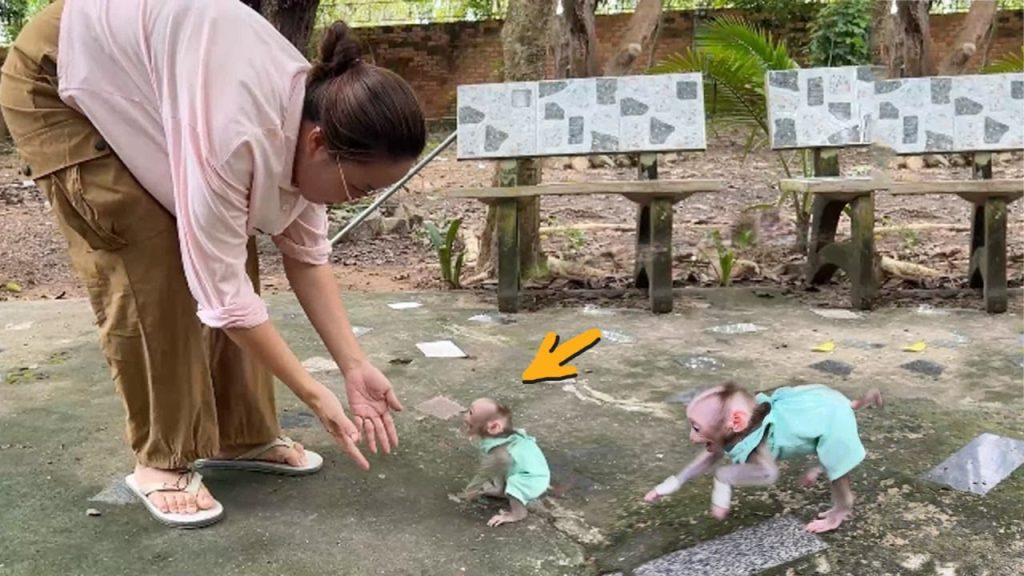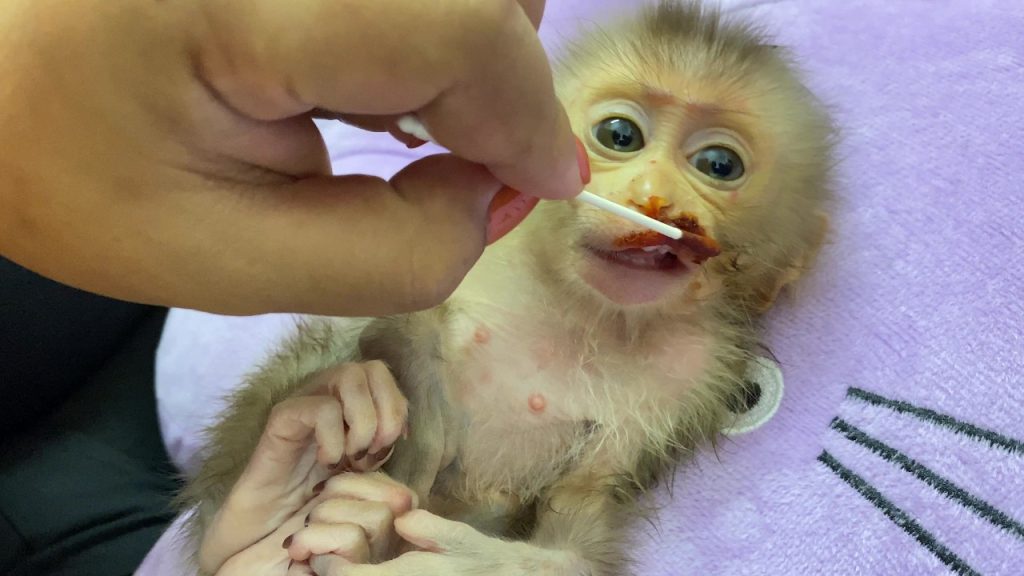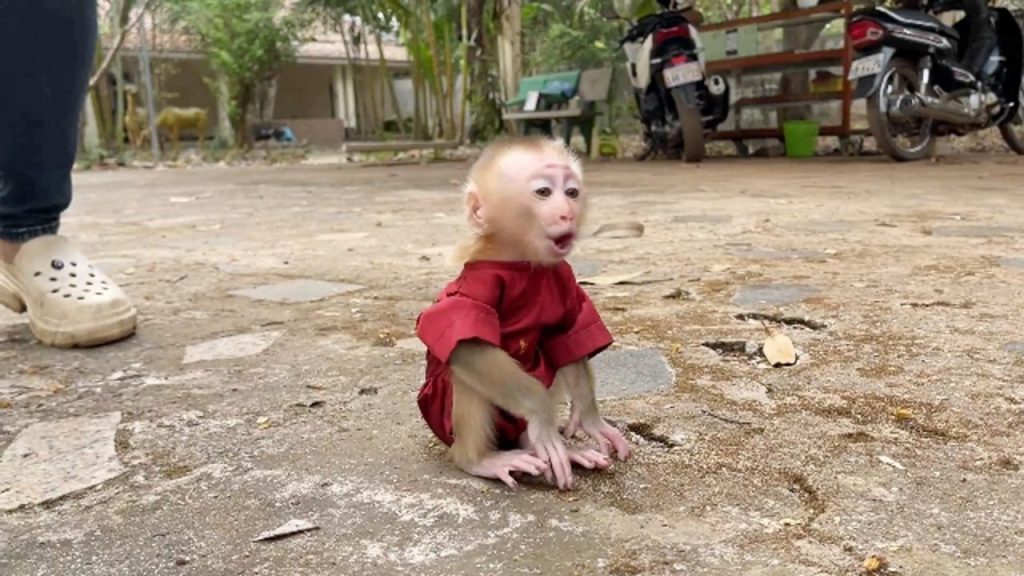
The forest echoed with a desperate sound—tiny, trembling cries that pierced the stillness. In the corner of a pot hole filled with muddy water, a baby monkey struggled. His fur was soaked and smeared with dirt, his tiny face streaked with both tears and grime. Left alone, abandoned, he cried with all the strength he had, hoping someone—anyone—would hear.
Each attempt to climb out ended in failure. His fragile arms slipped against the wet edges, sending him tumbling back into the cold mud. The more he struggled, the filthier he became. His eyes darted around, wide with fear, his small body shaking with both exhaustion and heartbreak. The baby monkey wanted only one thing: his mother’s embrace. But she was nowhere to be found.
The cries grew louder, echoing like a plea for mercy. Every sound carried his loneliness, every tear showed his helplessness. The pot hole became not just a trap of mud but a symbol of his abandonment. He sat there shivering, weak yet unwilling to stop calling for love.
Then, a flutter of hope. A rustle in the trees above, footsteps drawing near. Would it be danger—or salvation? His cries reached higher, his tiny arms stretching out of the pit as if begging the world not to leave him behind.
In that moment, the baby monkey’s voice became more than just noise—it was a raw reminder that no creature deserves to be left in despair. Even covered in mud, even trembling in weakness, he was still a life worth saving.


